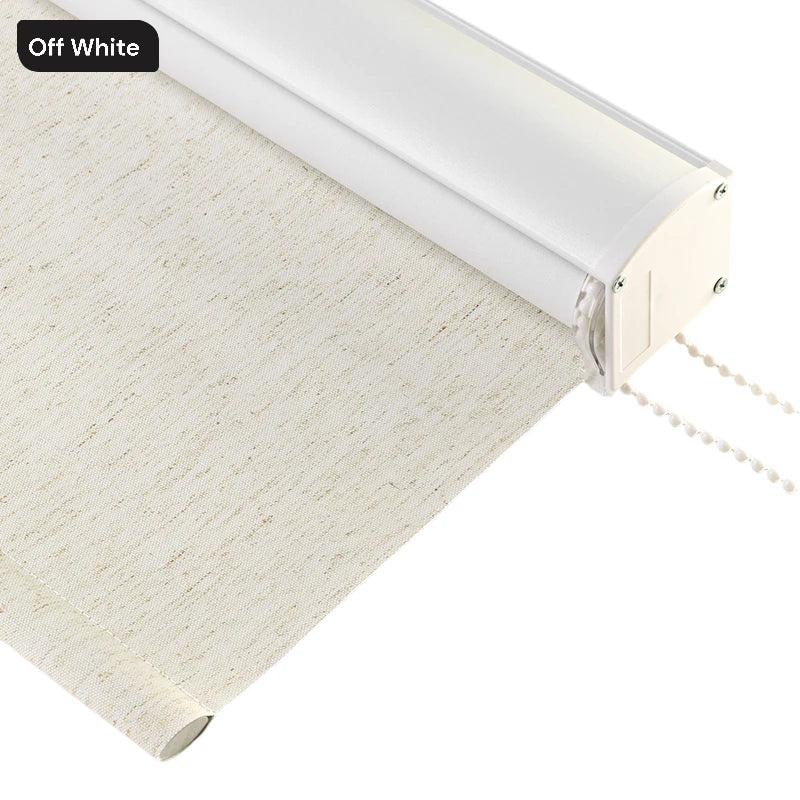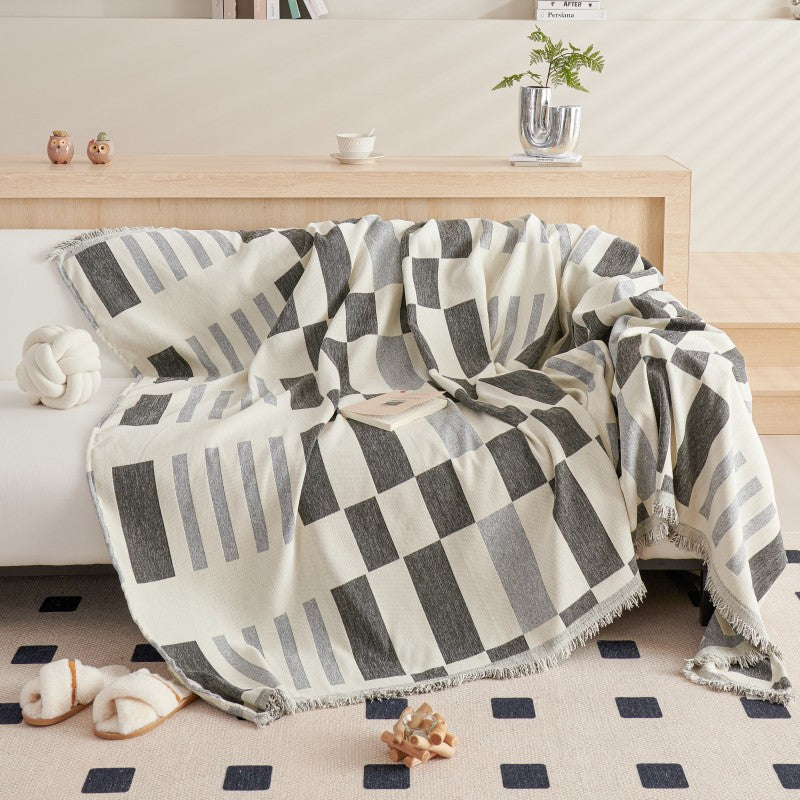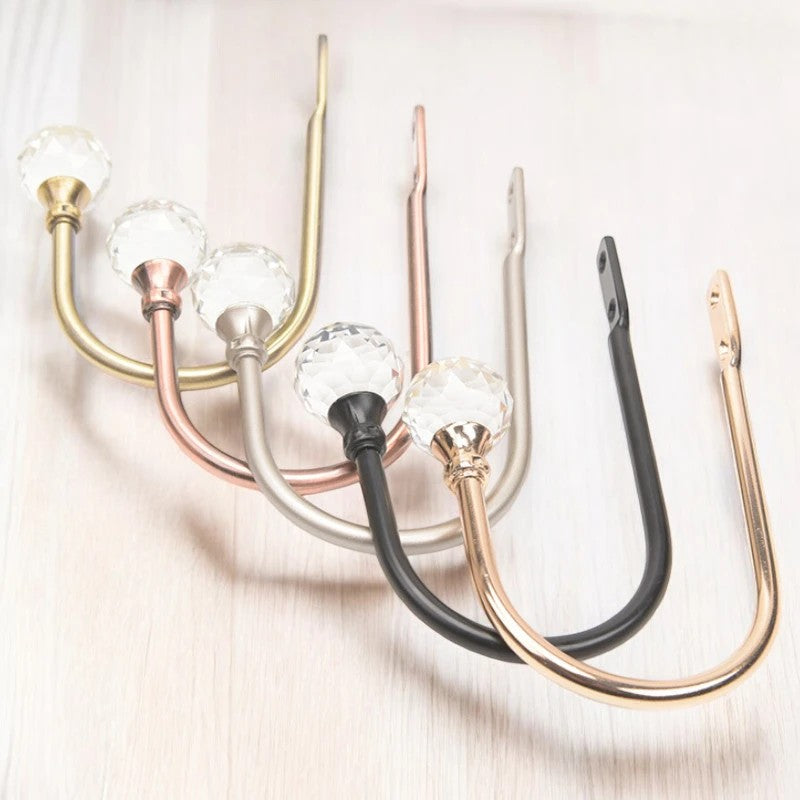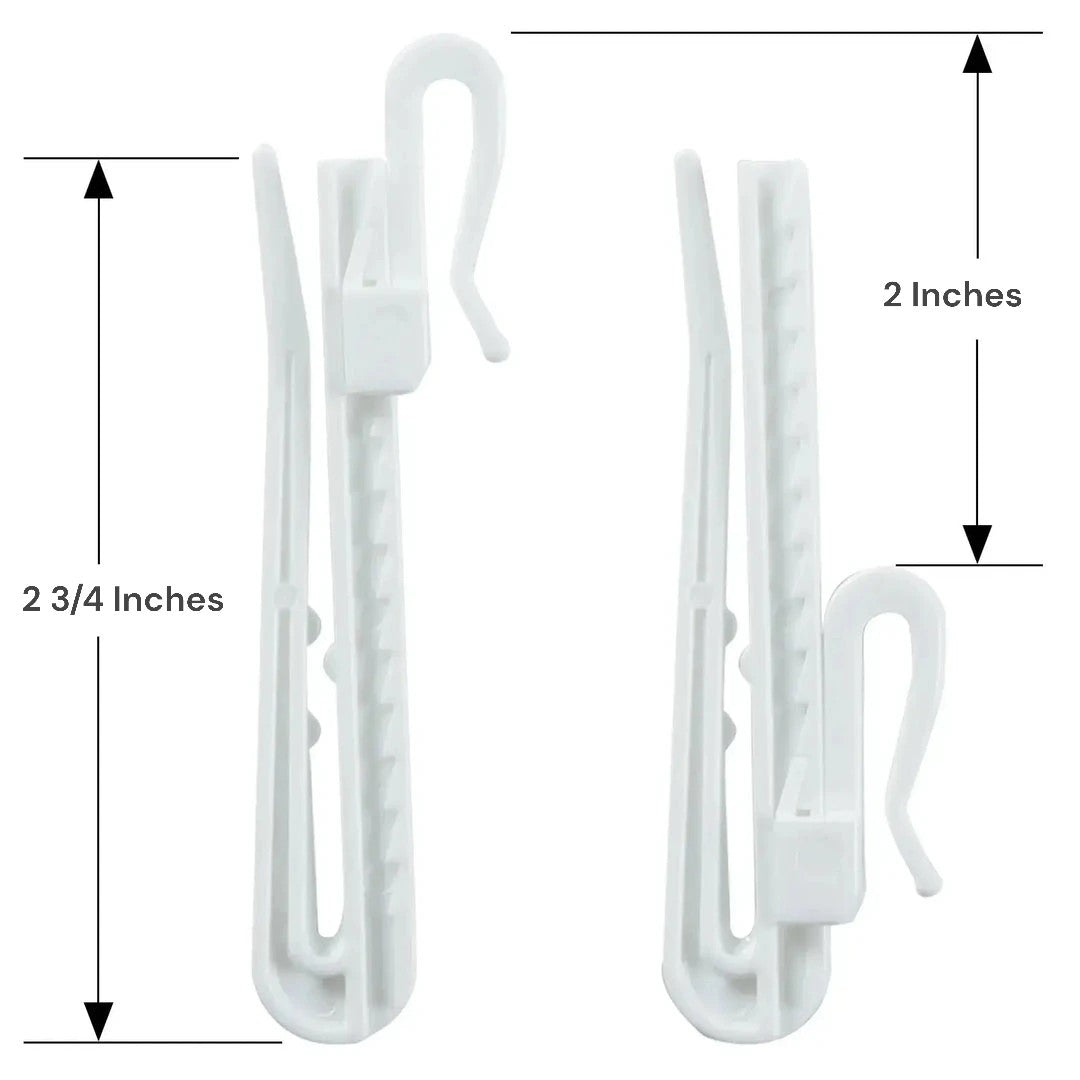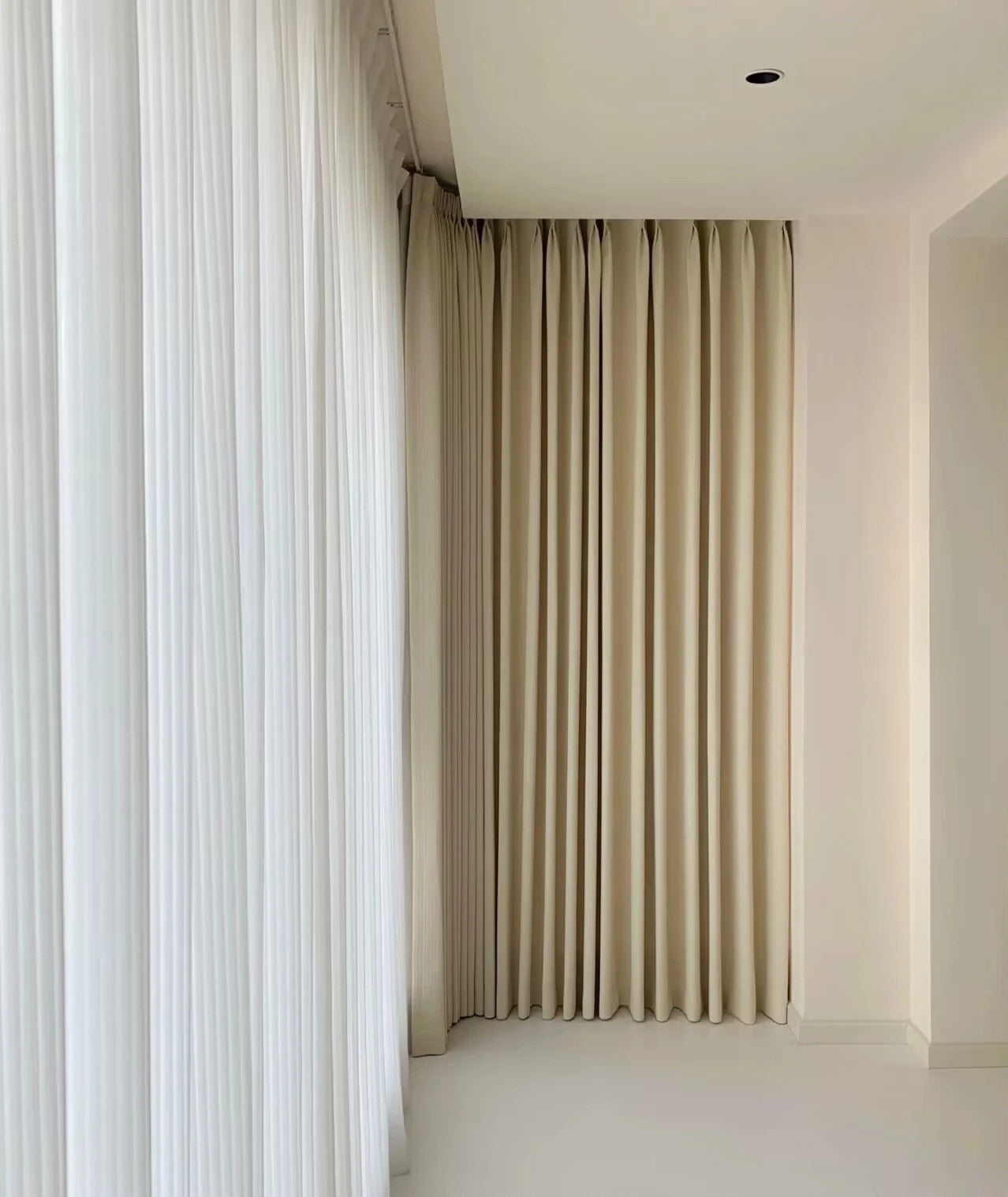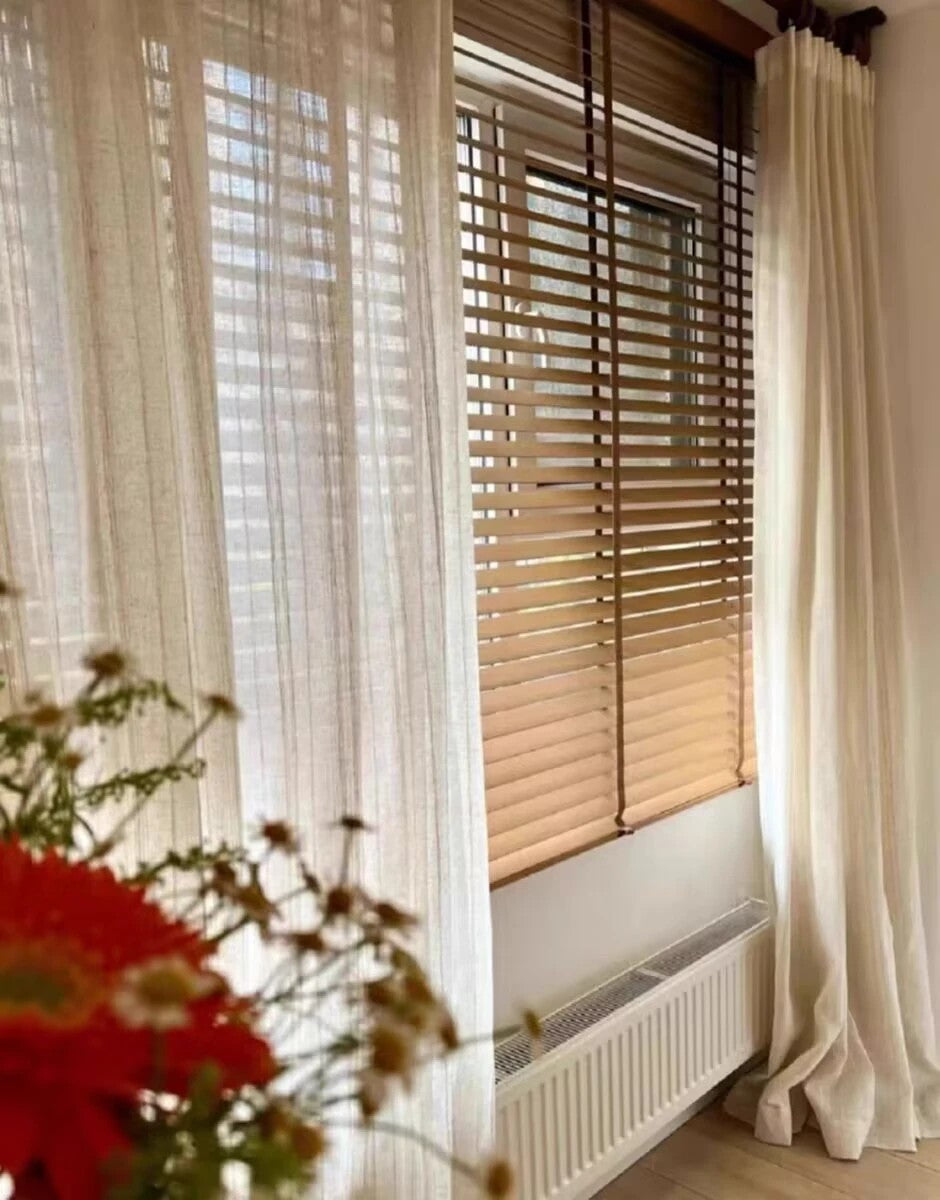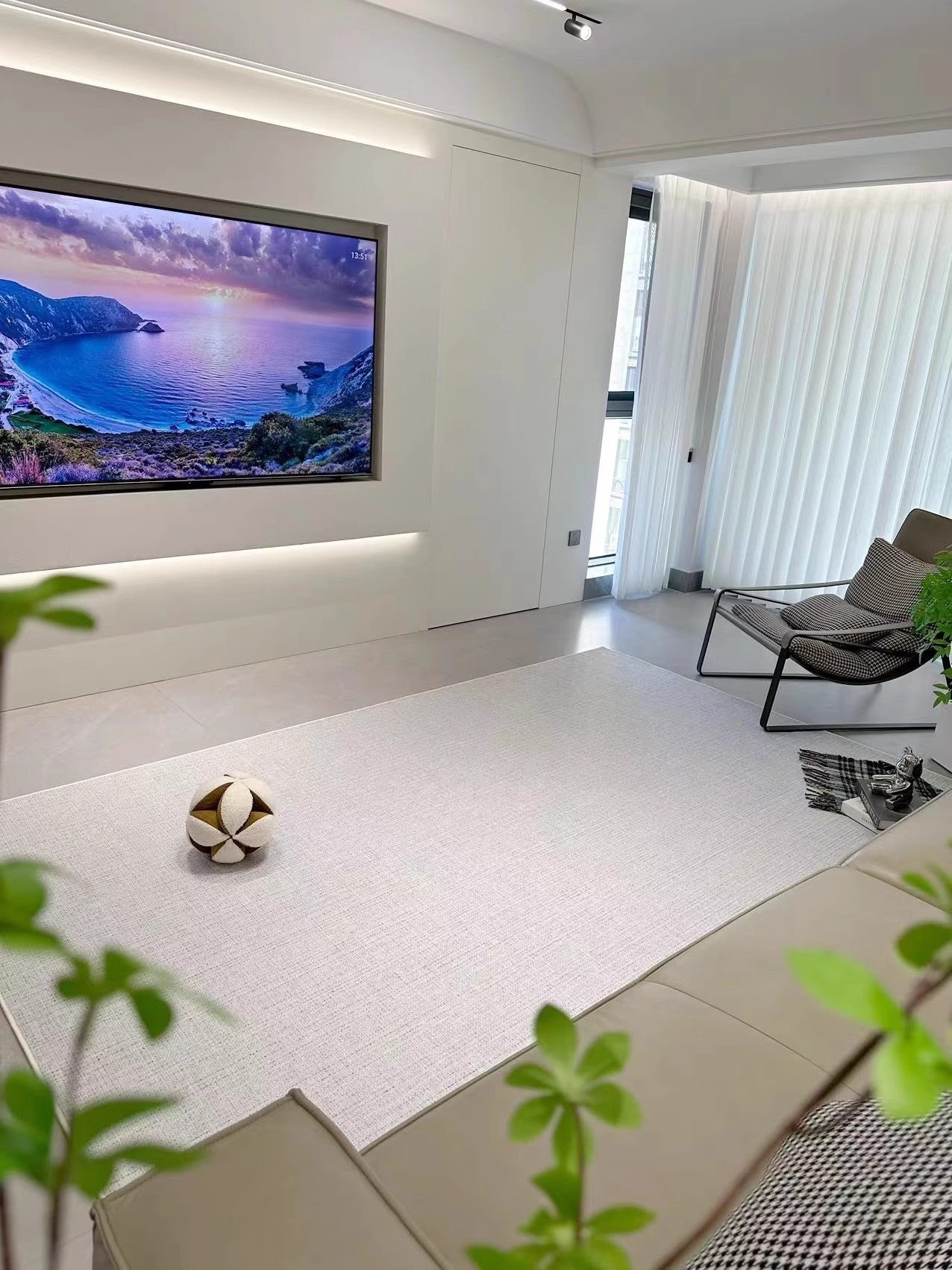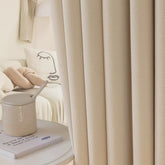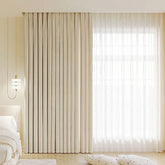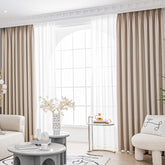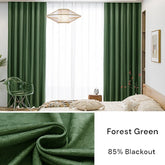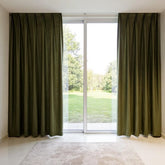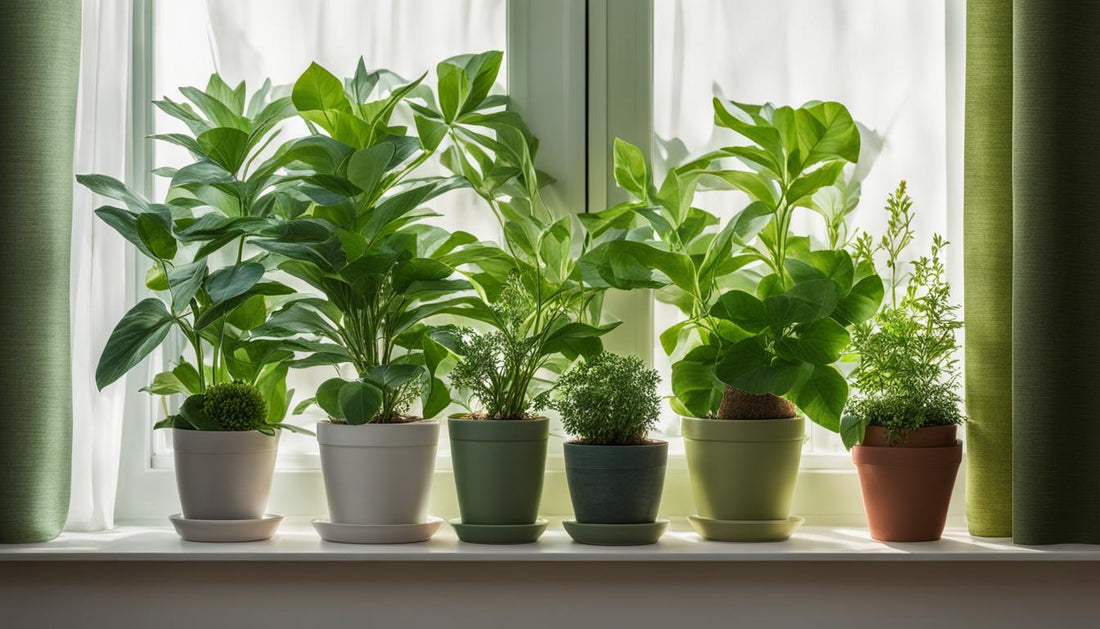How to Choose Curtains For Indoor Plants
At Dolcewe.com, we understand that balancing the interiors of your home with the needs of your indoor plants can be a harmonious affair.
It's a dance between choosing the right window treatments and ensuring your houseplants get enough natural light. That's why we've expanded our offerings to include curtains for plant growth.
These aren't just any plant curtains; they're the key to giving your leafy companions the perfect environment to thrive.
Key Takeaways
| Main Section | Key Takeaway |
|---|---|
| Understanding Light and Plant Needs | Choose sheer curtains for low-light plants, medium-weight fabrics for bright indirect light, and blackout curtains for plants needing darkness periods. Use LED grow lights to supplement natural light in darker areas. |
| Choosing the Right Curtains For Indoor Plants | Select light-colored curtains for warm climates to reflect heat, and darker curtains for cold climates to retain warmth. Match curtain colors to complement your plants' foliage for a cohesive look. |
| Choosing the Right Curtains For Greenhouse Plants | Utilize reflective fabrics like Aluminet shade nets in hot climates to reduce heat buildup. Opt for knitted shade cloth in diverse climates for better air circulation and light diffusion. Consider automated curtain systems for precise light control. |
| For Living Plant Curtains | Choose lightweight, breathable fabrics for living curtains to ensure proper air circulation and moisture management. Select trailing plants like pothos, ivy, or jasmine for lush, green curtain effects. |
| Additional Tips for Optimizing Plant Growth | Layer curtains (e.g., sheer and blackout) for adjustable light control throughout the day and seasons. Regularly monitor plant health and adjust curtain placement as needed to prevent light stress. |
| Shop Best Curtains For Plants At Dolcewe | Explore our custom-sized curtains starting at $26.99, available in various styles and fabrics to create the ideal environment for your indoor plants while enhancing your home decor. |
Understanding Light and Plant Needs

Every plant has different light needs. Some plants love bright light. Others prefer less light. Knowing what your plants need is the first step.
Understanding how to manage light for your indoor plants is crucial for their health and growth.
Here's what you need to know:
Optimal Light Levels for Different Plants
| Light Level | Ideal For | Examples | Curtain Recommendation |
|---|---|---|---|
| Low Light | Forest floor plants | Snake Plant, ZZ Plant | Sheer curtains |
| Medium Light | Most houseplants | Pothos, Philodendron | Light to medium-weight curtains |
| Bright Light | Blooming species | Orchids, Succulents | Medium-weight curtains with adjustable panels |
| Direct Light | Sun-loving plants | Cacti, Citrus trees | Blackout curtains for heat control, open during sun hours |
Use sheer curtains for low to medium light plants to diffuse harsh sunlight while still allowing enough light through.
How to Check Your Plant's Light Needs
Not sure what your plant needs? Look at the leaves. Yellow leaves often mean too much sun. Dark spots might mean too little light. You can also check the plant tag or search online. Most plant apps can tell you the light needs too.
Do you notice your plants leaning toward the window? That means they want more light. Are the leaves burning or turning yellow? They might need more shade from your curtains.
Best Curtain Types for Healthy Indoor Plants

The right curtains can make your plants very happy. Let's look at the main types that work well for plant parents.
Sheer Curtains: Perfect for Light-Loving Plants

Sheer curtains let in most of the sunlight. They create a soft, filtered light that many plants love. These curtains work great for plants that need bright, indirect light.
Plants like fiddle leaf figs and bird of paradise do well with sheer curtains. These curtains protect them from harsh direct sun. They still let in enough light for good growth.
At Dolcewe.com, our sheer voile curtains start at just $26.99. They come in many colors to match your home. You can get them in any size you need for your windows.
Light Filtering Curtains: The Versatile Option

Light filtering curtains block some light but not all. They give you more control than sheer curtains. These work well for most common houseplants.
These curtains help protect your plants from hot afternoon sun. They still allow enough light for healthy growth. Plants like pothos, philodendrons, and spider plants do well with these.
Our light filtering curtains at Dolcewe.com come in many fabrics. You can choose cotton, linen, or polyester. Each fabric filters light a bit differently.
Room Darkening Options: For Shade-Loving Plants

Some plants come from forest floors. They grow naturally in deep shade. These plants can burn in direct light or even bright indirect light.
Room darkening curtains are perfect for these shade-lovers. Plants like peace lilies and prayer plants will thank you. These curtains block most light but not all of it.
Would you like to create a special corner for your shade plants? Our room darkening curtains can help you make the perfect spot.
Supplementing Natural Light
When natural light is insufficient:
- Install LED grow lights near your plants
- Choose full-spectrum bulbs for balanced growth
- Set timers to mimic natural daylight cycles (14-16 hours for most plants)
Position grow lights 6-12 inches above your plants and adjust based on their response.
UV Protection for Sensitive Plants
While some UV exposure can benefit plants, excessive amounts can be harmful. Here's how to protect your plants:
- Use UV-filtering window films on south-facing windows
- Hang light-colored curtains to reflect harmful rays
- Rotate plants regularly to ensure even exposure
For immediate UV protection, move sensitive plants a few feet away from windows during peak sunlight hours (10 AM - 4 PM).
Climate Control with Curtains
Curtains play a crucial role in maintaining the ideal environment for your plants:
| Climate Factor | Curtain Solution | Benefit to Plants |
|---|---|---|
| Temperature | Thermal curtains | Prevents cold drafts and heat loss |
| Humidity | Moisture-wicking fabrics | Reduces condensation and mold growth |
| Air Circulation | Layered curtains | Allows for adjustable airflow |
Install a combination of sheer and blackout curtains on a double rod system. This allows you to adjust light, temperature, and humidity throughout the day for optimal plant health.
By implementing these specific strategies, you can create the perfect environment for your indoor plants to thrive, using curtains as a key tool in your plant care arsenal.
Seasonal Curtain Adjustments for Plant Health
Your plants' needs change with the seasons. Your curtains should change too!
Summer Sun Protection

Summer sun is much stronger than winter sun. Your plants may need more protection during hot months.
In summer, you might want to:
- Use thicker curtains during peak sun hours
- Add an extra layer of protection for sensitive plants
- Close curtains during the hottest part of the day
Our thermal curtains can help keep your plants cool. They block heat as well as excess light. This keeps your plants happy even on hot summer days.
Winter Light Maximization

In winter, most homes don't get enough light for plants. You'll want to let in as much light as possible.
During winter months, try to:
- Open curtains fully during daylight hours
- Choose lighter fabric curtains
- Clean your windows for maximum light
We offer curtain holdbacks that make it easy to keep curtains open. They look pretty and help your plants get more winter sun.
Matching Curtains to Your Home and Plants

Your curtains should make both you and your plants happy. They should match your home style too.
Color Considerations
Did you know curtain colors affect light quality?
- White or light curtains create bright, clean light.
- Colored curtains tint the light that reaches your plants.
Most plants do best with natural light colors. But some plants don't mind colored light. Try to pick curtain colors that:
- Match your home decor
- Create the right light for your plants
- Make you happy when you see them
Color Considerations for Plant Health
| Curtain Color | Climate Suitability | Plant Benefits |
|---|---|---|
| Light Colors | Warm climates | Reflects heat, keeps plants cool |
| Dark Colors | Cold climates | Absorbs heat, provides warmth |
In warm climates, choose light-colored curtains for south-facing windows to protect heat-sensitive plants like ferns and calatheas.
Our custom color matching service helps you find the perfect shade. We can match any color in your home decor.
Fabric Selection for Plant Health
The curtain fabric matters a lot for plant health. Some fabrics block more UV rays than others. Some let in more heat.
- Cotton and linen curtains let plants get more natural light.
- Polyester curtains often filter out more UV rays. Think about what your specific plants need.
Do you have plants that need UV protection? Or do they need full spectrum light? Choose your fabric based on these needs.
Choosing the Right Curtains For Greenhouse Plants
Successful greenhouse management requires precise control over light levels and temperature.
Here's how to choose the best curtains for your greenhouse plants:
Reflective Fabrics: Ideal for Hot Climates
Benefits:
- Reduce heat buildup
- Minimize glare
- Protect plants from intense sunlight
Install Aluminet shade nets to reflect excess heat while allowing sufficient light for photosynthesis.
Mesh Fabrics: Perfect for Diverse Climates
Advantages:
- Provide excellent ventilation
- Diffuse light evenly
- Maintain consistent temperature
Use knitted shade cloth for balanced light distribution and air circulation, suitable for a wide range of plant species.
Blackout Fabrics: For Precise Light Control
Uses:
- Manipulate photoperiods
- Induce specific growth phases
- Create darkness periods
Implement blackout curtains for plants requiring dark cycles to trigger flowering or fruiting.
Automated Curtain Systems: The Ultimate Solution
| Feature | Benefit | Action Step |
|---|---|---|
| Motorized controls | Effortless adjustments | Install motorized curtains for easy management |
| Timer-controlled options | Consistent light exposure | Set timers to match your plants' light requirements |
| Weather-responsive systems | Adaptive light control | Invest in smart systems that adjust to weather conditions |
Expert Advice: Implement an automated curtain system to precisely control light levels throughout the day, ensuring optimal growth for each plant species in your greenhouse.
For Living Plant Curtains

At Dolcewe.com, we're passionate about helping you transform your space with living plant curtains.
Here's how to create your own green paradise:
Choosing the Right Plants
Select trailing plants that thrive in your specific light conditions:
| Light Condition | Recommended Plants |
|---|---|
| Bright, indirect light | Pothos, English Ivy, Jasmine |
| Low light | Philodendron, Spider Plant, String of Hearts |
| Partial shade | Boston Fern, Creeping Fig, Wandering Jew |
Mix fast-growing and slow-growing plants for a fuller look. For example, combine quick-growing pothos with slower-growing English ivy.
Optimal Curtain Materials
Choose curtain fabrics that support plant health:
- Lightweight, breathable fabrics: Opt for linen or cotton blends to ensure proper air circulation.
- Moisture-wicking materials: Select fabrics with moisture-management properties to prevent mold growth.
- Sturdy weaves: Choose tightly woven fabrics that can support climbing plants without tearing.
Our custom-made linen-cotton blend curtains (starting at $26.99) are perfect for living plant curtains, offering both breathability and durability.
Maintenance Tips for Thriving Plant Curtains
- Water plants regularly, but avoid oversaturating the curtain fabric.
- Prune plants every 2-3 weeks to maintain shape and encourage fuller growth.
- Rotate your curtains quarterly to ensure even growth and light exposure.
- Use a light mist spray to clean leaves and increase humidity.
For the best results, water your living plant curtains once a week, allowing the soil to dry slightly between waterings. This prevents root rot while keeping plants healthy.
Additional Tips for Optimizing Plant Growth with Curtains
At Dolcewe, we're committed to helping you create the perfect environment for your indoor plants.
Here are some actionable tips to maximize plant growth using curtains:
Layering Curtains for Precise Light Control
Combine different curtain types to adjust light levels throughout the day and seasons:
- Morning: Use sheer curtains to allow gentle morning light
- Midday: Add a medium-weight curtain to filter intense sunlight
- Evening: Close blackout curtains to provide darkness for plants that need it
Pro Tip: Install a double curtain rod system to easily switch between curtain layers. Or simply opt for our sheer over blackout curtains.
Strategic Curtain Placement
| Window Location | Recommended Curtain Position | Benefit |
|---|---|---|
| South-facing | 4-6 inches from the window | Allows air circulation, prevents heat buildup |
| North-facing | Closer to the window | Maximizes limited light exposure |
| East/West-facing | Adjustable position | Adapts to changing light intensity throughout the day |
Seasonal Curtain Adjustments
Adapt your curtain setup to changing seasons for optimal plant growth:
- Spring: Use light-diffusing curtains to protect from late frost while maximizing natural light
- Summer: Employ reflective curtains to reduce heat and prevent leaf burn
- Fall: Switch to thermal curtains to retain warmth as daylight decreases
- Winter: Opt for clear thermal curtains to insulate plants while allowing limited sunlight
Monitoring Plant Health
Look for these signs to determine if your curtain setup needs adjustment:
- Leggy growth: Indicates insufficient light - consider using sheerer curtains
- Leaf burn: Suggests too much direct sunlight - add a light-filtering layer
- Slow growth: May need more light - try opening curtains for longer periods Create a weekly plant health checklist to track these signs and adjust your curtains accordingly.
Maintaining Curtains in Plant-Rich Environments
Plants and curtains can affect each other. Good care habits help both last longer.
Dealing with Humidity and Moisture
Many plants increase room humidity. This can make curtains damp or moldy. Here's how to prevent problems:
- Choose Moisture-resistant curtains for indoor garden
- Keep curtains from touching damp soil
- Wash curtains regularly
- Keep good air flow in plant areas
Our performance fabrics resist mold and mildew. They work great in rooms with lots of plants.
Cleaning Tips for Plant Window Curtains
Plant windows get dirty faster than other windows. Dust, pollen, and plant debris can build up. Clean your curtains often to keep them looking good.
Most of our curtains are machine washable. This makes them easy to care for. Just check the care label for washing instructions.
Shop the Best Curtains for Your Indoor Plants
At Dolcewe.com, we offer a range of Budget-friendly curtains for plant growth to create the perfect environment for your indoor greenery. Here's how our curtains can benefit your plants and home:
| Plant Need | Recommended Curtain Type | Benefit |
|---|---|---|
| Filtered Light | Sheer Curtains | Protects plants from harsh sunlight while allowing enough light for photosynthesis |
| Darkness Periods | Blackout Curtains | Ensures complete darkness for plants that require specific light/dark cycles |
| Temperature Control | Thermal Curtains | Maintains optimal temperature for tropical plants |
| Humidity Retention | Velvet or Heavy Fabric Curtains | Helps create a microclimate for moisture-loving plants |
Key Features of Our Plant-Friendly Curtains:
- Custom sizing options starting at $26.99
- Various styles, fabrics, and colors to match your decor
- Durable materials that withstand humidity and frequent adjustments
Actionable Tips for Choosing the Right Curtains:
- Measure your windows accurately for a perfect fit
- Consider the light requirements of your specific plants
- Choose colors that complement both your plants and room decor
- Opt for easy-to-clean fabrics if you mist your plants regularly
Why Choose Dolcewe.com:
- Over 10 years of experience in home decor
- Expert advice on plant-curtain pairings
- Affordable prices without compromising quality
Visit our custom curtains today to transform your space into a thriving indoor garden. Your plants will flourish, and your home will radiate with natural beauty.



